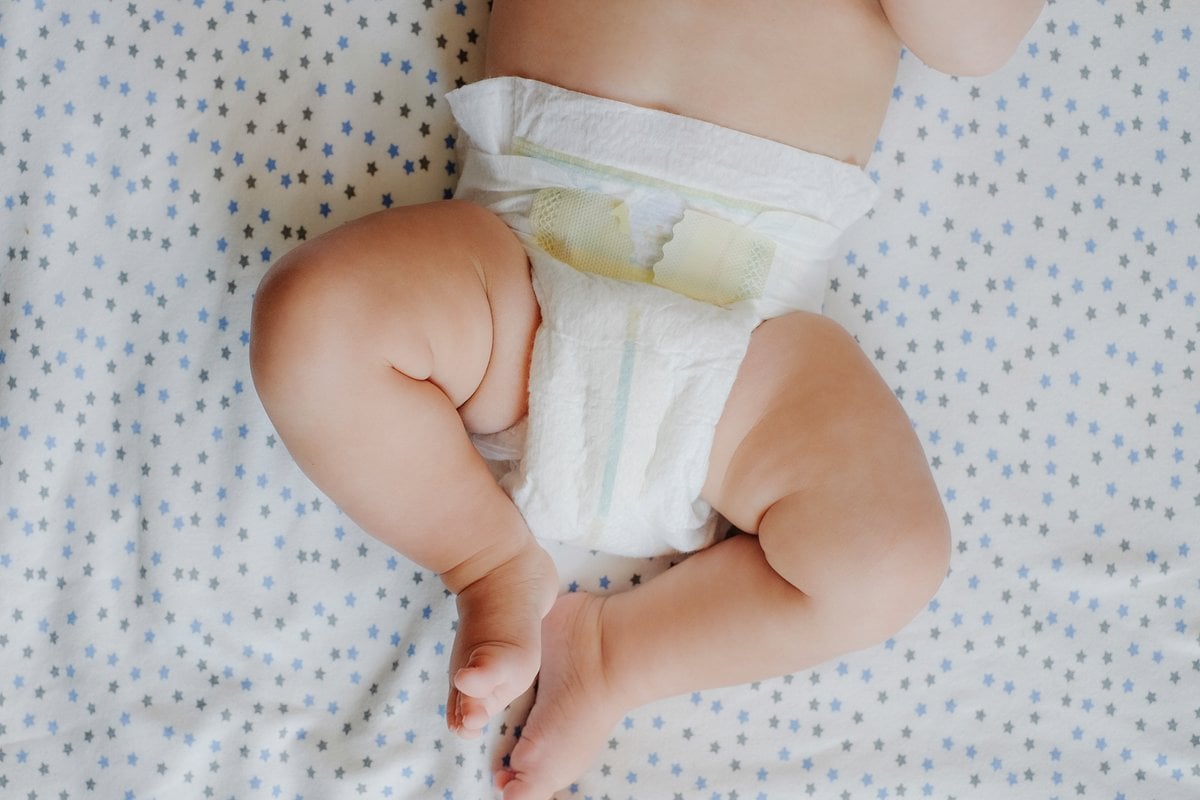
Raise your hand if you've spent more time than you'd like to admit analysing your bub's poo. Guilty here! I know that when I had my first bub, Nahla, I was obsessed!
Every nappy change I was looking at the colour, the consistency and frequency. It quickly became a top point of conversation between my husband and I (and, well, anyone who would listen).
While there is so much to analyse about your bub's number two's, one of the most important things is consistency. Baby poo can vary so much, and it's often hard to know what's normal and what needs medical attention. For me, I know this information would have been so helpful to know as a first time mama.
Watch: If your newborn could text. Post continues below.
The first poo your bub does is meconium. It's thick, sticky and black to dark green.
Meconium might go on for a few days. Once your milk starts to come in, the meconium will change to a lighter green and be less thick or sticky.
By around day three to four, the poo should change to yellow-orange, and be runny in consistency. BUT, there's a huge range of 'normal' amongst bubs.
Here's what to look out for depending on where your newborn baby is at with feeding.
Breastfed baby poo:
- Soft and runny. The range of 'soft' can vary. It can be liquid-like with curds, or a bit thicker like cottage cheese. It might even vary from one nappy to the next.
- It shouldn't be hard like pellets or have any blood.
- It is RARE for an exclusively breastfed baby who is receiving adequate milk to become constipated.
Formula-fed baby poo:



Top Comments